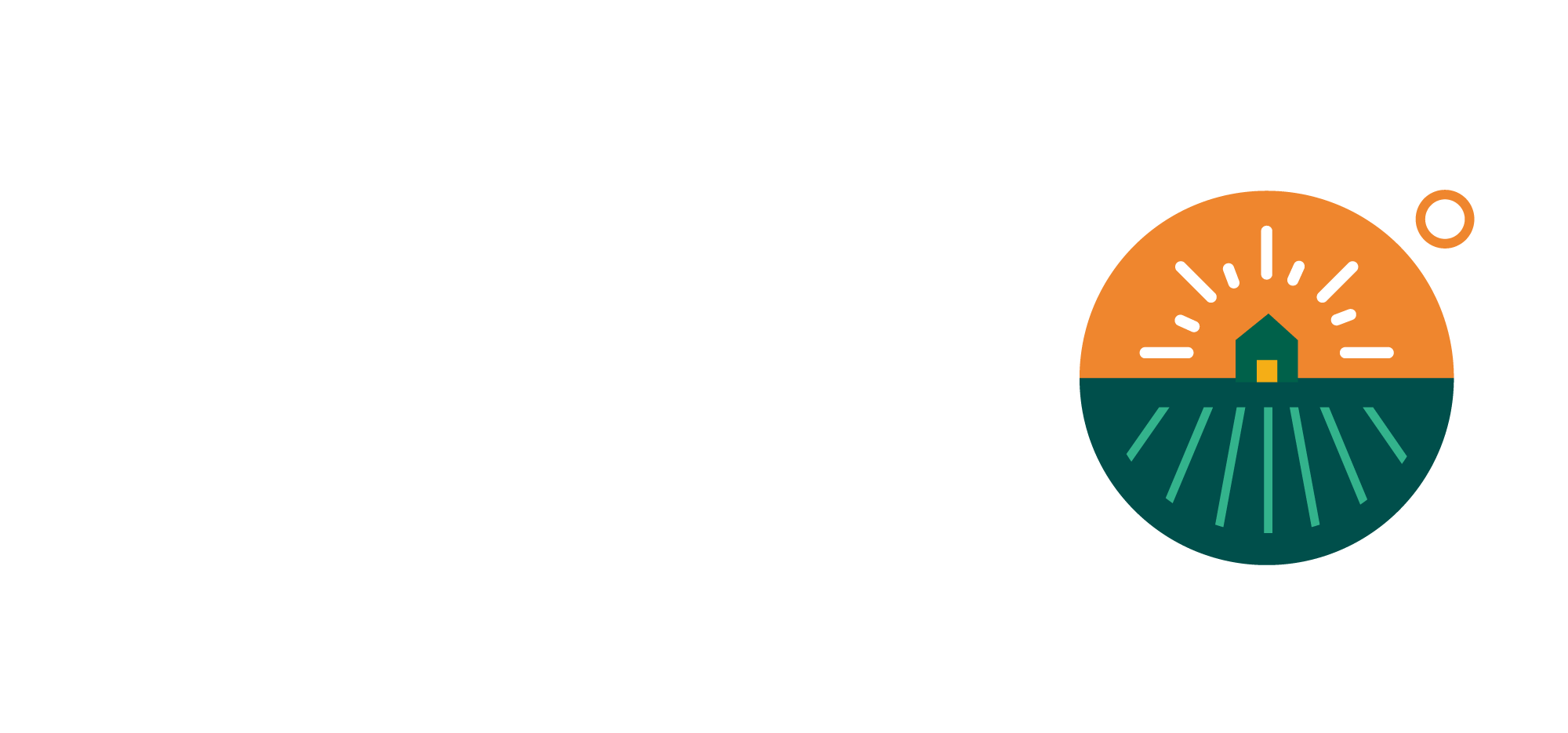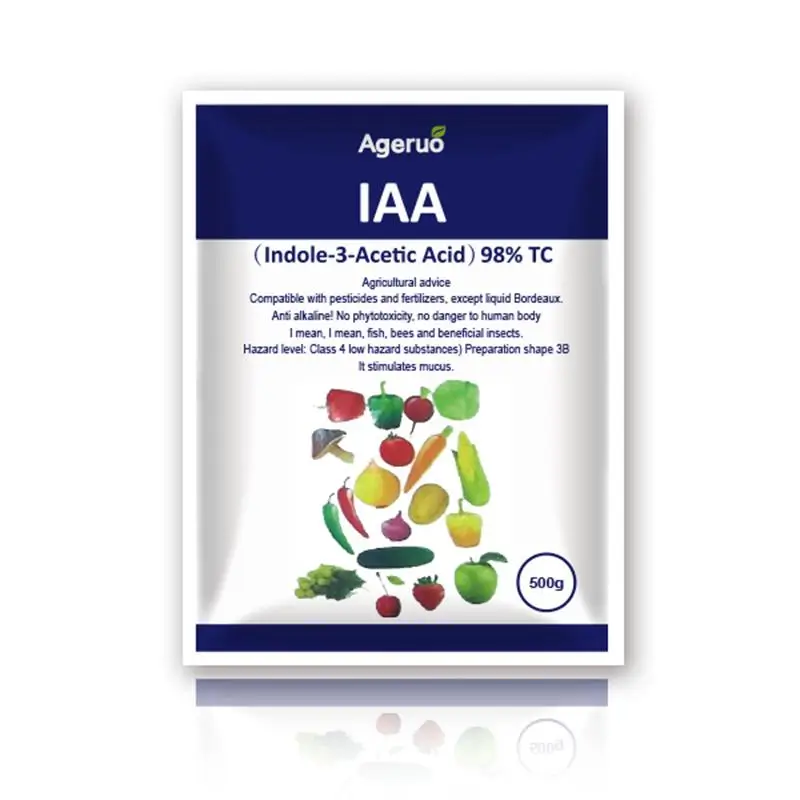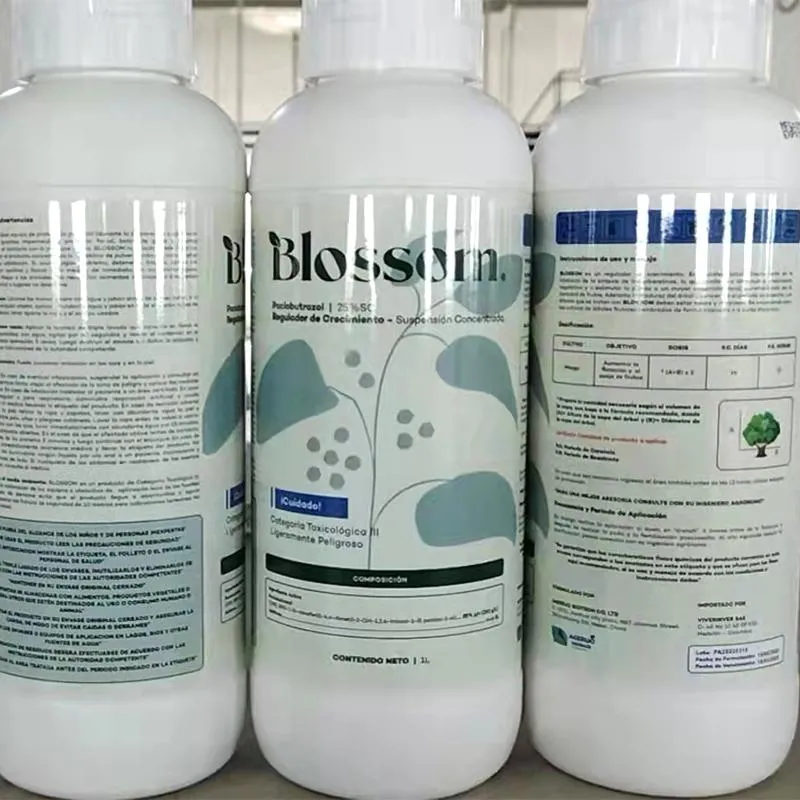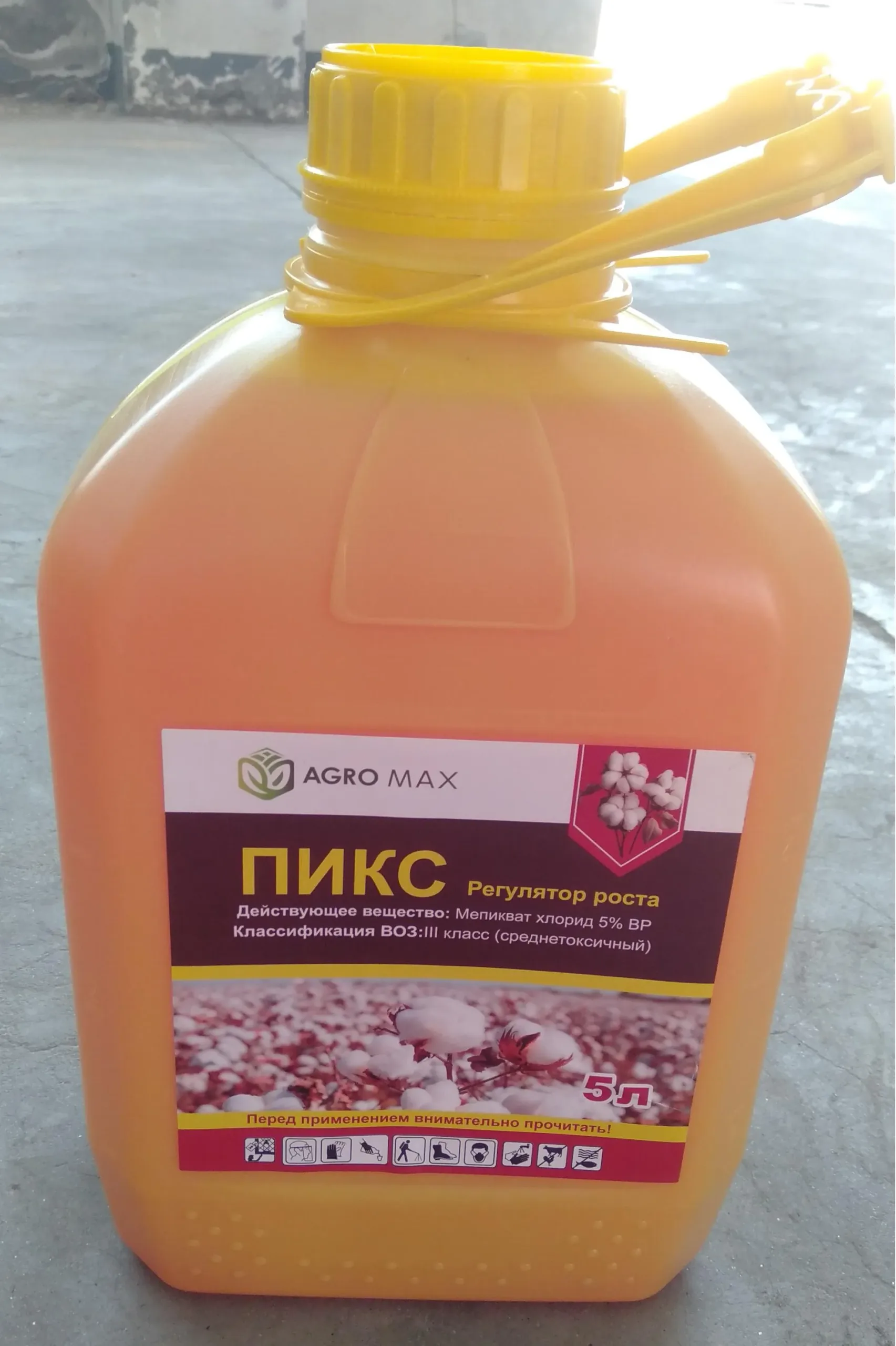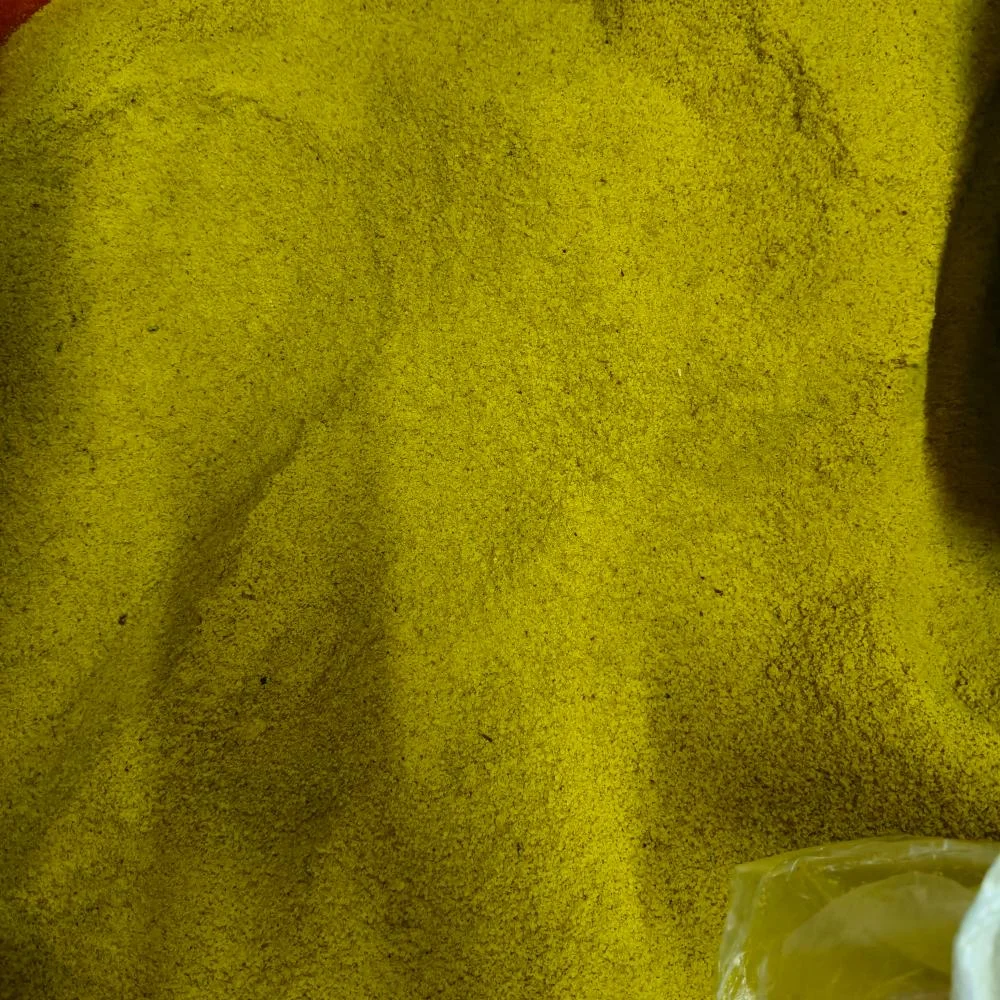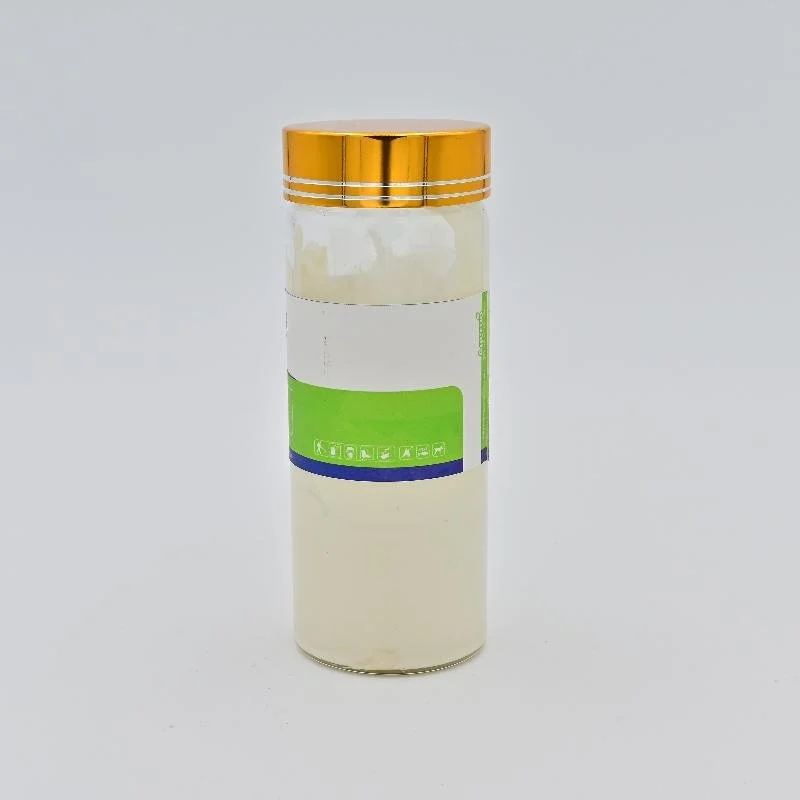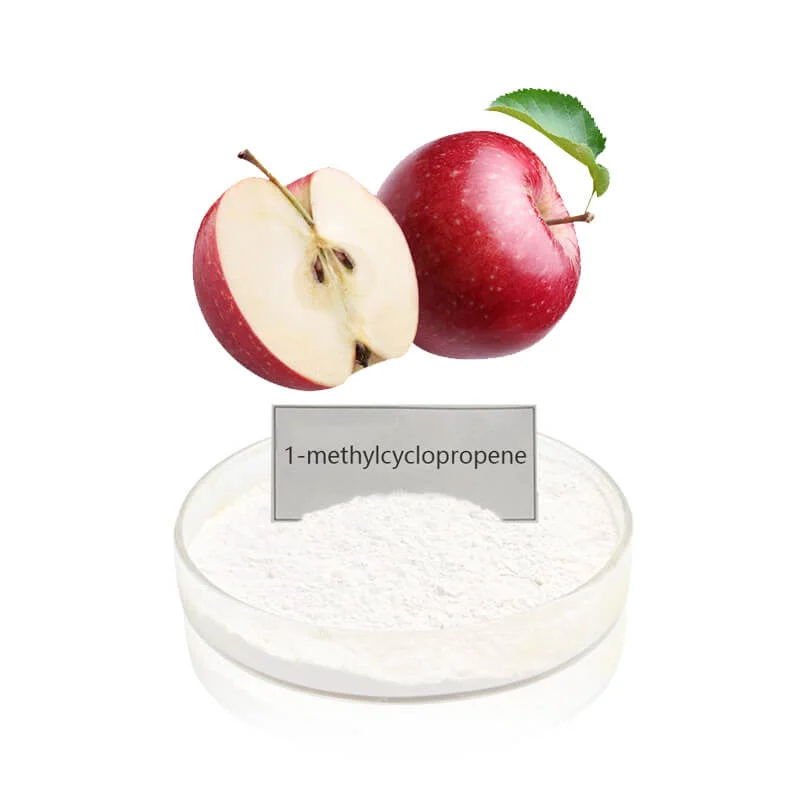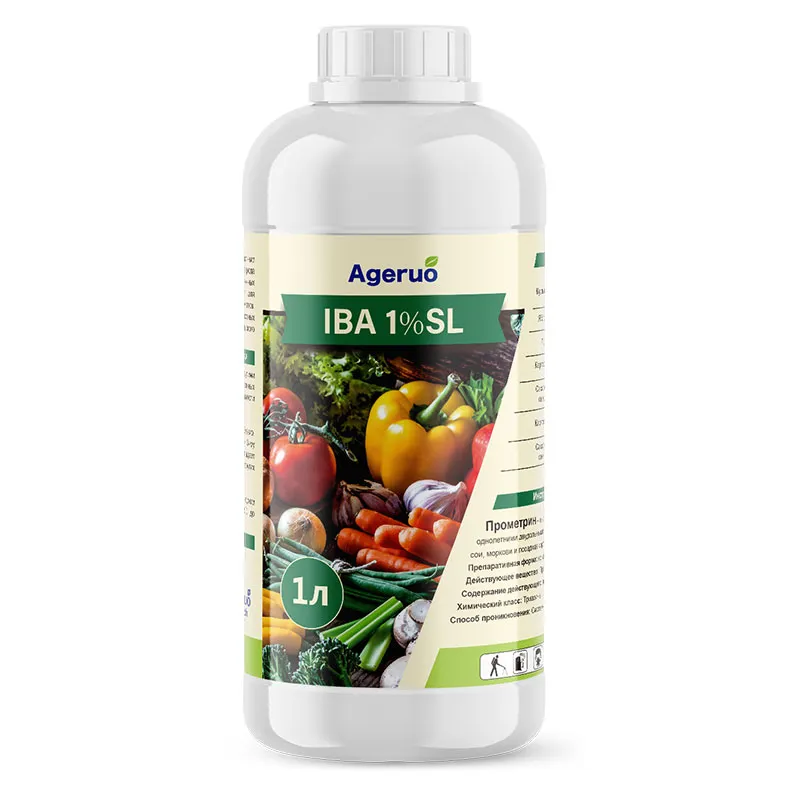Indole-3-Acetic Acid (IAA) 98% TC Plant Growth Regulator
High-Purity Auxin Plant Growth Regulator from POMAIS
Looking for a reliable auxin to promote rooting and fruit development? POMAIS Indole-3-Acetic Acid (IAA) 98% TC is a high-purity plant growth regulator widely applied in agriculture and horticulture. As a natural auxin, IAA effectively stimulates adventitious root formation, enhances fruit set in tomatoes, and supports vegetative propagation for crops like tea, rubber, and ornamental plants.
Backed by custom OEM packaging, fast global delivery, and strict quality control, POMAIS offers flexible formulations and responsive support to meet your specific needs. Whether you’re sourcing raw materials for formulation or seeking a trusted auxin supplier, POMAIS delivers IAA that’s ready for action.
Key Features:
- 98% TC purity for consistent performance
- Suitable for seedling rooting and fruit set enhancement
- Available in customized packaging
- Free samples & low MOQ available
- Designed for Professional Buyers & Bulk Orders
- We support custom packaging, labeling, and formulation to meet your market needs.
- Export wholesale inquiries only.
- Please include destination country, business type (importer/distributor/registrant), and expected volume.
- Retail requests will not be processed.

About Indole-3-Acetic Acid (IAA) 98% TC Plant Growth Regulator
| Product Name | Indole-3-Acetic Acid (IAA) 98% TC |
| Formulation Type | Technical Concentrate (powder), also available in 0.11% SL, 97% TC, 50% WDG |
| Active Ingredient | Indole-3-Acetic Acid – 98% purity |
| Chemical Formula | C10H9NO2 |
| CAS Number | 87-51-4 |
| Mode of Action | Auxin hormone; promotes cell elongation, division, root induction, and fruit set |
| Key Applications | Rooting of cuttings, seed treatment, fruit set induction, flowering control, nursery propagation |
| Target Crops | Tomato, rice, sugar beet, tea, pepper, rubber, grapes, ornamentals, forestry crops |
| Recommended Use | 100–1000 mg/L for rooting; 10–50 mg/L for seed soaking; 25–400 mg/L for flowering control |
| Rainfastness | Absorbed within 1–2 hours; best applied in cool, calm conditions |
| Packaging Options | 100g–1kg foil bags, 25kg drums (powder); 100mL–5L bottles (SL), OEM customizable |
| OEM / Private Label | Yes – multilingual design, anti-counterfeit label, brand logo support |
| Regulatory Documents | COA, MSDS, TDS, full registration dossier available upon request |
| Production Standards | ISO 9001:2015 & ISO 14001 certified manufacturing |
| Logistics & Export | FOB/CIF/DDP terms; delivery to over 60 countries; fast documentation clearance |
| Technical Support | Formulation guidance, dosage consultation, label compliance, market localization |
Indole-3-Acetic Acid (IAA) 98% TC – Premium Auxin-Based Plant Growth Regulator for Rooting, Fruit Set, and Vegetative Propagation
POMAIS Indole-3-Acetic Acid (IAA) 98% TC is a high-purity, broad-spectrum plant growth regulator belonging to the auxin class, widely recognized for its exceptional effectiveness in stimulating root development, improving fruit set, and accelerating vegetative propagation in a variety of agricultural and horticultural crops.
As the most studied and naturally occurring auxin, indole-3-acetic acid plays a vital role in plant physiology, especially in cell elongation, division, and differentiation. It is commonly used for inducing parthenocarpy in tomatoes to produce seedless fruits and for enhancing the rooting success of cuttings from crops such as tea, rubber, oak, pepper, metasequoia, and other woody or herbaceous plants. Additionally, IAA promotes early-stage germination, enhances sugar beet yield, and even delays flowering in ornamental species like chrysanthemum.
At POMAIS, we provide IAA 98% TC in bulk powder form and offer various formulations such as 0.11% SL and 97% TC, tailored to your market needs. Our OEM and ODM services include custom labeling, formulation adjustment, and packaging design to help your brand stand out in the plant growth promoter market.
Core Benefits of POMAIS IAA 98% TC:
- High-activity auxin for professional agricultural use
- Promotes adventitious root growth and fruit set naturally
- Supports propagation in cuttings and seed treatments
- Delays flowering and modifies crop growth stages where needed
- Available in customized packaging for global distributors
- Strict compliance with international quality standards
- Free samples and low MOQ starting at 500kg
Whether you are an importer, distributor, or agrochemical formulator, POMAIS offers a consistent, high-quality supply of indole-3-acetic acid from China, backed by fast delivery and regulatory support.
Mode of Action of Indole-3-Acetic Acid (IAA)
Indole-3-acetic acid (IAA) functions as a primary auxin plant hormone, regulating numerous physiological and biochemical processes in plants. Its mode of action involves modulating gene expression and cellular behavior to enhance plant growth and development, particularly at early stages.
Once absorbed by plant tissues, IAA promotes:
- Cell division and elongation by increasing proton (H⁺) concentration in the cell wall, loosening the wall and allowing cell expansion.
- Tissue differentiation and root induction, triggering the development of adventitious roots on cuttings and promoting lateral root formation.
- RNA synthesis stimulation, which leads to the production of specific growth-related proteins and enzymes.
- Increased membrane permeability, enhancing nutrient and water uptake across plant cells.
- Accelerated cytoplasmic streaming and protoplasmic flow, boosting metabolic efficiency and transport processes.
This unique combination of effects makes IAA a versatile tool for improving plant propagation, seedling vigor, and fruit development. It also influences apical dominance, phototropism, and gravitropism—crucial for regulating balanced plant architecture.
Note: This product is a technical-grade raw material (98% TC) and is not intended for direct application on crops without proper formulation. It must be processed into finished pesticide or plant growth regulator formulations before field use.
Target Applications & Crop Uses of Indole-3-Acetic Acid (IAA)
Indole-3-acetic acid (IAA) is widely utilized across horticulture, agriculture, and plant biotechnology due to its broad-spectrum regulatory effects on plant development. As a natural auxin-type plant growth regulator, IAA is especially effective in:
1. Rooting of Cuttings
- Primary use: Stimulates adventitious root formation on plant cuttings.
- Crops: Tea, rubber tree, oak, metasequoia, black pepper, grapes, and ornamentals.
- Benefit: Significantly improves vegetative propagation success rates and uniformity in nurseries.
2. Fruit Set & Parthenocarpy Induction
- Promotes fruit set in tomatoes, cucumbers, and eggplants, even without pollination, leading to the development of seedless fruit (parthenocarpic effect).
- Enhances the number and quality of fruit, especially under poor pollination conditions or stress environments.
3. Seed Germination & Yield Enhancement
- Treating sugar beet, rice, or cotton seeds with IAA improves germination rates, accelerates early growth, and can lead to higher root mass and increased yield.
- Enhances nutrient absorption and supports stronger seedling establishment.
4. Flowering Control
- IAA can delay or synchronize flowering in crops such as chrysanthemums or ornamental plants by adjusting hormonal balance, which is particularly valuable in commercial floriculture.
5. Gender Expression & Floral Induction
- Application on crops like Malus or cucurbits has been shown to increase female flower ratio, supporting more productive fruit-bearing cycles.
Additional Suitable Crops:
- Rice
- Tomatoes
- Cucumbers
- Tea
- Grapes
- Bananas
- Sugar beets
- Ornamentals
- Rubber trees
- Seedlings of forestry crops
IAA’s multi-functionality makes it a core ingredient in propagation protocols, foliar spray programs, seed treatments, and controlled growth strategies for commercial crop production.
Note: Dosage and formulation should be tailored to specific crop stages and agronomic goals. POMAIS provides IAA in both technical and formulated grades to suit diverse market demands.
Application Methods & Recommended Dosage of Indole-3-Acetic Acid (IAA)
Indole-3-acetic acid (IAA) should be used in precise concentrations tailored to your crop, growth stage, and application goal. It is typically applied through cutting dips, foliar sprays, seed soaking, or solution irrigation, depending on your propagation or growth regulation requirements.
1. Root Induction for Cuttings
- Objective: Promote adventitious root formation.
- Dosage: Dilute IAA to 100–1000 mg/L (ppm) depending on species sensitivity.
- Method: Soak the basal ends of cuttings (e.g., tea, pepper, oak, rubber tree) in the prepared solution for 5–10 seconds before planting.
- Frequency: Single application at time of cutting propagation.
2. Root Development in Rice Seedlings
- Objective: Enhance root initiation during transplant stage.
- Dosage: 1–10 mg/L IAA combined with 10 mg/L of oxazolin.
- Method: Root dip or foliar spray before or after transplanting.
- Note: Use lower range concentrations for young or sensitive seedlings.
3. Flowering Delay and Control
- Objective: Postpone flower bud emergence for seasonal flowering control.
- Dosage: 25–400 mg/L IAA.
- Method: Foliar spray once, ideally during photoperiod adjustment phase (e.g., 9-hour light cycles in chrysanthemums).
- Effect: Delays blooming for synchronized marketing or growth.
4. Female Flower Enhancement in Fruit Crops
- Objective: Increase female flower ratio in cucurbits or Malus species.
- Dosage: 10⁻⁵ mol/L (~1.75 mg/L).
- Method: Foliar spray once during early vegetative growth under long-day conditions.
5. Seed Treatment for Yield Enhancement
- Objective: Promote seed germination, improve root yield, and increase sugar content.
- Crops: Sugar beet, root vegetables.
- Dosage: Soak seeds in 10–50 mg/L IAA solution for 6–12 hours.
- Note: Ensure uniform soaking and immediate drying before sowing.
General Guidelines
- Avoid mixing with alkaline substances to preserve IAA activity.
- Always prepare fresh solutions before application; avoid prolonged storage after dilution.
- Wear protective equipment when handling concentrated forms of IAA.
- Apply under cool, shaded conditions to maximize uptake and reduce evaporation.
Pro tip: Begin with a trial application to determine optimal concentration for your local crop variety and climatic conditions.
Formulation Types & Product Availability
To meet diverse application needs and regulatory preferences across different agricultural systems, Indole-3-Acetic Acid (IAA) is offered in multiple high-quality formulations. These variants are designed to suit everything from industrial-scale pesticide manufacturing to field-level crop application.
1. IAA 98% Technical Concentrate (98% TC)
- Description: Pure technical-grade powder ideal for formulation into SL, WP, or WDG types.
- Use Case: Suitable for agrochemical factories or distributors seeking raw materials for repackaging or downstream processing.
- Appearance: Off-white to light beige crystalline powder.
- Shelf Life: 2 years in sealed, dry storage.
- Keyword Focus: indole-3-acetic acid 98% TC, IAA technical powder
2. IAA 0.11% Soluble Liquid (SL)
- Description: Ready-to-use liquid formulation ideal for rooting, foliar spraying, and greenhouse applications.
- Use Case: Direct use by farmers and growers for seedling, cuttings, or foliar treatment.
- Advantages: Fast absorption, easy to dilute, minimal residue.
- Keyword Focus: indole-3-acetic acid 0.11% SL, IAA liquid formulation
3. IAA 97% Technical Concentrate
- Description: Slightly lower purity option for general non-food crop applications or less-sensitive crops.
- Use Case: Suitable for cost-sensitive markets or industrial applications.
- Keyword Focus: IAA 97% powder, IAA technical grade
4. IAA 50% Water-Dispersible Granules (WDG)
- Description: Water-soluble granules with enhanced shelf stability and uniform dispersion.
- Use Case: Large-scale agriculture requiring precision foliar or soil application.
- Keyword Focus: IAA 50% WDG, IAA granules formulation
Packaging Options
- Standard: 25g, 100g, 1kg aluminum foil bags; 1L/5L HDPE bottles for SL formulations.
- Bulk Supply: 25kg fiber drums for technical powder.
- Customization: All packaging can be branded with your logo and product design under our OEM/ODM services.
Note: Each formulation complies with industry-grade purity standards and is tested for stability and effectiveness under multiple environmental conditions.
Tank Mix Compatibility & Application Precautions
Tank Mix Compatibility
Indole-3-Acetic Acid (IAA) demonstrates good compatibility with a variety of plant growth regulators and micronutrients, particularly when used in vegetative propagation, seedling establishment, and transplant support. However, due to its auxin-based hormonal nature, careful attention should be paid when combining it with other agrochemical products.
- Compatible with:
- Cytokinins (e.g., kinetin, 6-BA) for synergistic shoot and root development
- Gibberellic acids (GA3) to enhance cell elongation in seedling stages
- Rooting compounds like NAA (Naphthaleneacetic acid) and IBA (Indole-3-butyric acid)
- Use caution or avoid mixing with:
- Alkaline solutions or strong oxidants, as they may degrade the IAA molecule
- Copper-based fungicides and sulfur-containing compounds, which may affect hormonal balance
- Strong surfactants or oil-based carriers without prior testing
Before large-scale application, it is highly recommended to conduct a small-scale jar test to verify physical and chemical compatibility.
Application Precautions
To ensure optimal results and crop safety, the following precautions must be observed when applying Indole-3-Acetic Acid formulations:
- Dilution Accuracy: Always dilute to the recommended ppm (mg/L) range based on your crop type and developmental stage. Over-application can lead to abnormal growth or tissue injury.
- Environmental Conditions:
- Apply during cool, calm weather, preferably in the early morning or late afternoon.
- Avoid spraying under high temperature or drought stress, as auxin absorption and transport may be hindered.
- Application Surfaces:
- For rooting purposes, treat the cutting base only, not the entire plant.
- For foliar use, ensure uniform coverage without runoff or excessive dripping.
- Human Safety:
- Wear gloves, masks, and eye protection during handling.
- Avoid inhalation or direct skin contact with concentrate or solution.
- Wash exposed skin immediately after use and avoid eating or smoking during handling.
- Water Quality:
- Use clean, soft water to prepare the solution.
- Avoid hard water with high pH or high metal content, which may reduce IAA effectiveness.
Proper handling and adherence to guidelines will help you maximize the physiological benefits of IAA while minimizing any phytotoxic or environmental risks.
Regulatory Compliance & Safety Classification
Global Regulatory Status
Indole-3-Acetic Acid (IAA) is a widely recognized plant growth regulator that complies with agricultural and environmental regulations in multiple markets. As a naturally occurring auxin compound, IAA is approved for use in plant propagation, rooting induction, and growth enhancement in a range of countries, especially in:
- China: Registered as a technical-grade active ingredient and permitted in formulations such as 98% TC, 0.11% SL, and 97% TC.
- European Union (EU): Listed under permissible biostimulants and plant hormones with use restrictions depending on crop type and dosage.
- United States (EPA): Recognized as a biochemical pesticide with tolerance exemptions for use in specific seed treatments and propagation media.
- FAO/WHO Codex: Meets general standards for plant growth regulators in food crop applications when used within prescribed limits.
Our IAA is manufactured in facilities that operate under ISO 9001:2015 and ISO 14001 quality and environmental management systems, ensuring consistent quality and international compliance.
Safety Classification
Indole-3-Acetic Acid is considered low-toxicity to humans and animals when used according to guidelines. However, it must be handled with standard pesticide safety measures.
| Classification | Description |
|---|---|
| GHS Classification | Not classified as hazardous under normal agricultural use |
| Toxicological Profile | LD50 (oral, rat): >2000 mg/kg – low acute toxicity |
| Irritation Potential | Mild eye or skin irritant in concentrated form |
| Carcinogenicity | Not listed as carcinogenic by IARC, OSHA, or NTP |
Safety Data Sheet (SDS) Availability
A full Safety Data Sheet (SDS) is available upon request, including first-aid measures, transport classifications, storage guidelines, and spill handling instructions. This ensures full transparency and support for your internal safety protocols and regulatory audits.
By sourcing from POMAIS, you benefit from a product that is not only highly effective but also supported by a comprehensive compliance system for safe, global use.
Packaging Formats & Custom OEM Services
Standard Packaging Options
POMAIS offers Indole-3-Acetic Acid (IAA) in a range of secure, industry-standard packaging solutions tailored for both technical-grade materials and ready-to-use formulations. All packaging is designed to ensure product stability, integrity during transit, and compliance with international shipping regulations.
Available packaging formats include:
- Aluminum foil bags (for 98% TC powder): 100g, 500g, 1kg, 5kg
- HDPE bottles (for liquid formulations like 0.11% SL): 100mL, 250mL, 500mL, 1L
- HDPE drums and fiber drums: 25kg, 50kg, 100kg
- IBC tanks or flexitanks for large-volume orders (bulk SL formulation)
Packaging is moisture-proof, UV-resistant, and certified for international export standards.
OEM & Private Label Services
As a professional agrochemical manufacturer and export supplier, POMAIS provides OEM (Original Equipment Manufacturing) and ODM (Original Design Manufacturing) services to global distributors, importers, and agricultural brands.
We support you with:
- Custom bottle and drum design (materials, colors, sizes)
- Multilingual labeling & branding based on your market requirements
- Regulatory-compliant labeling (QR code traceability, GHS icons, batch numbers, expiry dates)
- Flexible MOQ policy to support both startups and large-volume clients
- Custom carton printing & barcode integration for supply chain efficiency
Our in-house design team can provide free label and packaging mockups within 3 business days, helping you bring your own brand to life quickly and professionally.
Why Our Packaging Services Stand Out
- Anti-leak sealing systems for long-distance shipment reliability
- Strict quality control on bottle materials, seal integrity, and printing accuracy
- Global logistics support for CIF, FOB, DDP, and door-to-door delivery options
- Experience with over 50 export destinations, including Southeast Asia, Latin America, Africa, and the Middle East
Whether you’re launching a new agricultural product line or scaling your existing business, POMAIS offers the full packaging and branding support needed to stand out in your market.
Field Applications & Global Market Suitability
Field Applications Across Major Crops
Indole-3-Acetic Acid (IAA) is widely applied in horticulture, forestry, floriculture, and broad-acre farming. Its primary role in stimulating root formation, fruit development, and vegetative propagation makes it indispensable across the production lifecycle of diverse crop types. Common IAA field applications include:
- Vegetative Propagation (Rooting Agent): Promotes adventitious root formation in cuttings of tea, rubber, oak, metasequoia, pepper, and grapevines. Widely used in nursery operations and commercial seedling production.
- Fruit Set Enhancement: Used during the flowering stage of tomatoes to induce parthenocarpy, form seedless fruits, and improve fruit-setting rates under stress.
- Seed Germination Boost: Improves seedling vigor in crops like sugar beet and rice, enhancing early-stage crop establishment.
- Flowering Regulation: In floriculture (e.g., chrysanthemum), used to delay flowering for market timing or growth manipulation.
- Crop Yield Improvement: By enhancing nitrogen assimilation and delaying senescence, IAA indirectly contributes to higher yields in cereals, legumes, and vegetables.
Global Market Suitability
POMAIS IAA formulations are exported to over 50 countries, supporting both developing agricultural markets and high-standard regulated markets. Its compatibility with a wide range of crops makes it particularly popular in the following regions:
| Region | Primary Applications |
|---|---|
| Southeast Asia | Tea, rubber, and pepper rooting in tropical nurseries; rice root induction |
| Latin America | Tomato parthenocarpy, seedless fruit setting, sugar beet seed treatment |
| Africa | Rooting of horticultural cuttings; growth stimulation in bananas and cassava |
| Europe | Controlled flowering in ornamentals, sugar beet growth, greenhouse propagation systems |
| Middle East | Date palm and citrus propagation, fruit set under high-temperature conditions |
Our experience in meeting regional registration standards, labeling compliance, and seasonal application preferences ensures that our IAA products align with the specific needs of local growers and distributors.
Whether for nursery propagation, high-value vegetable production, or large-scale horticulture systems, Indole-3-Acetic Acid from POMAIS delivers consistent results and global usability.
FAQ – Common Questions About Indole-3-Acetic Acid (IAA)
Q1: What is the primary use of Indole-3-Acetic Acid in agriculture?
A: Indole-3-Acetic Acid (IAA) is primarily used as a plant growth regulator to promote rooting, enhance fruit setting, and accelerate vegetative propagation in a wide variety of crops including tea, rubber, pepper, tomato, and ornamentals.
Q2: Can IAA be used for seed treatment?
A: Yes. IAA is often used to treat seeds of crops like sugar beet to promote faster germination, improve root development, and enhance overall seedling vigor, which translates into better field performance.
Q3: What is the recommended concentration for IAA when used as a rooting agent?
A: A common recommendation is to use 100–1000 mg/L solution to soak the base of cuttings. The optimal rate may vary based on plant species and environmental conditions.
Q4: Is Indole-3-Acetic Acid safe for all types of crops?
A: While IAA is safe and widely compatible, it must be used at the appropriate concentration. Overuse or misuse can lead to phytotoxicity, especially on sensitive varieties. Always follow local guidelines and perform preliminary testing if uncertain.
Q5: Can IAA be mixed with other plant growth regulators or agrochemicals?
A: IAA can be tank-mixed with other compatible PGRs such as gibberellins or cytokinins in regulated combinations. However, it should not be mixed with strong alkaline substances. Always conduct a small-scale compatibility test before full-scale use.
Q6: What are the packaging and shelf life details of your IAA products?
A: Our standard offering is 98% TC powder, with customized packaging ranging from 100g foil bags to 25kg drums. Shelf life is 2 years under proper storage conditions.
Q7: Is this product registered for use in my country?
A: POMAIS supports clients worldwide with documentation, COA, MSDS, and registration assistance based on local regulatory requirements. Contact our team to confirm country-specific approvals or initiate new registrations.
Why Choose POMAIS as Your Indole-3-Acetic Acid (IAA) Supplier
1. Manufacturer-Direct Supply for Competitive Pricing
As a trusted IAA manufacturer in China, POMAIS offers direct-from-factory pricing with no intermediaries. You benefit from stable supply, transparent cost structures, and consistent product availability year-round.
2. Multiple IAA Formulations to Meet Diverse Application Needs
We supply 98% TC, 0.11% SL, 97% TC and other IAA formulations tailored for seed treatment, foliar spray, and rooting enhancement. Our R&D team can also develop customized formulations to match your local agricultural practices.
3. Professional OEM/ODM Services
POMAIS provides private label solutions, including custom packaging design, branded label printing, and language localization for your target market. Our OEM services help distributors build brand equity and stand out in competitive markets.
4. Full Technical & Registration Support
We assist clients in completing pesticide registrations by providing COA, MSDS, TDS, and product dossiers as required by local authorities. Our regulatory team is familiar with procedures in Asia, Latin America, Africa, and the Middle East, making your entry to new markets faster and smoother.
5. High Purity & Batch Traceability
Every batch of Indole-3-Acetic Acid undergoes strict HPLC testing, purity verification, and multi-point QC inspections. We offer complete traceability from raw material sourcing to final shipment, ensuring regulatory compliance and buyer confidence.
6. Global Logistics Capabilities
POMAIS partners with reliable logistics providers to deliver IAA shipments to over 60 countries, offering flexible delivery terms such as FOB, CIF, or DDP. Our dedicated team ensures efficient export procedures, rapid customs clearance, and safe delivery to your warehouse or port.
7. Strong Client Reputation & After-Sales Support
Distributors and agrochemical buyers worldwide rely on POMAIS not only for high-quality IAA products, but also for responsive service and expert agronomic support. We remain a long-term technical and commercial partner, not just a one-time supplier.
Partner with POMAIS Today
Ready to bring high-purity Indole-3-Acetic Acid (IAA) to your market? Whether you’re a fertilizer blender, agrochemical distributor, or OEM brand owner, POMAIS is your reliable supplier for plant growth regulators backed by quality, consistency, and service.
With years of experience in global agrochemical trade, we understand what professional buyers need: certified products, flexible customization, on-time delivery, and registration-ready documentation.
Take the next step in expanding your plant growth portfolio with a proven IAA supplier.
Contact us now to request a quote, receive a free sample, or start your OEM project.
Grow with POMAIS – where innovation meets reliability.
